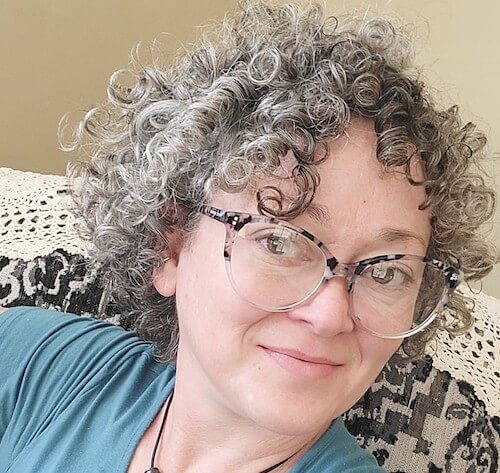Scalp acne, which can occur for a variety of different reasons, can be especially bothersome and even painful. Additionally, it might be hard to nail down exactly what's causing your scalp acne and determine the right treatment. But what if you could prevent your scalp acne altogether with simple holistic options?
VEGAMOUR spoke with a dermatologist about how to get rid of and prevent scalp acne — plus, find out what products you can use to restore the health of your scalp.
What Is Scalp Acne?
Sebaceous glands on your scalp produce natural oils to keep your hair healthy. But when pores become clogged, it can lead to tiny bumps or scalp pimples which, if left untreated, can worsen into inflammation and larger scalp bumps. From there, infection, hair loss or scarring can occur. While small pimples can cause itching and irritation, larger or infected ones can cause severe pain or pustules that require oral antibiotics to clear up.
Here are some different types of scalp acne and their causes.
Acne Cosmetica
Acne cosmetica is caused by cosmetics, too many hair products with comedogenic ingredients, beauty product buildup and improper rinsing when washing the hair.
Acne Vulgaris
According to the National Library of Medicine, acne vulgaris is the most common chronic skin disease in the U.S. It's caused by inflammation and clogging of pores from a wide range of catalysts like poor scalp environment, excessive production of sebum and genetics.
Scalp Folliculitis
While not acne, a condition called scalp folliculitis may develop when hair follicles become inflamed (like from scalp pimples.)
How to Encourage a Healthier Scalp
VEGAMOUR spoke with Dr. Harikiran Cheruki, a dermatologist with Clinic Spots, for some advice on how to create a healthy scalp.
Use a Gentle Shampoo
Dr. Cheruki said that when shampooing your hair, you should use a gentle cleanser. "Choose a mild, sulfate-free shampoo or cleanser
to avoid further irritation," he said. "Avoid harsh scrubbing, which can make acne worse. Instead, massage the cleanser into your scalp gently with your fingertips."
VEGAMOUR recommends using GRO Revitalizing Shampoo and Conditioner as the perfect cleansing system for sensitive scalps. This gentle cleansing and conditioning duo is formulated without sulfates and contains wild harvested marula oil, organic murumuru butter and ximenia oil, which help condition, hydrate and fight damaging free radicals without leaving behind pore-blocking residue.
Choose Non-Comedogenic Products
Be careful that your hair care products contain moisturizing ingredients and other molecules that are not comedogenic. The product will say something like "non-comedogenic" or "will not clog pores" on the packaging. Comedogenic ingredients get down into the pores of the skin and get lodged there, creating a blocked pore that develops into an acne blemish.
It's best to keep your hair care products simple and clean (mild shampoos formulated without sulfates, for example) while you sort out the imbalance that has your scalp so upset.
Exfoliate Your Scalp
Dr. Cheruki also recommended exfoliating the scalp regularly, which removes dead skin cells. Packed dead skin cells can cause scalp irritation, an increase in the production of excess oil and a rise in bacteria, potentially worsening scalp acne.
Remember: Washing hair helps clear pores and keep your scalp biome balanced, but improper rinsing of any hair care product can aggravate scalp acne putting your hair follicles at risk for infection.
To exfoliate while you shampoo your hair, apply gentle scalp massage to remove dead skin cells and other debris on the scalp. Do not scrub or scratch, which could create tiny abrasions on the skin that may become exposed to bacteria and develop into acne breakouts. Rinse well with tepid water to be sure the hair follicle area is clean and free of potential acne-causing residue.
You can also exfoliate the scalp by using a product that helps to clear away those dead skin cells, free radicals and other environmental pollutants which exacerbate your scalp acne problem.
Detox and physically exfoliate the scalp by using a GRO Scalp Detoxifying Serum:
- Removes persistent scalp buildup
- Actively helps to soothe scalp damage
- Provides a protective semipermeable scalp barrier
- Locks in moisture
- Protects the scalp from harmful environmental pollutants
- Contains Zinc PCA, which works to absorb excess oils while calming scalp irritation.
- Contains helpful botanicals like Epilobium angustifolium (Willowherb) extract to safely reduce the appearance of adherent and non-adherent flakes while creating a healthy scalp microbiome. Also contains Wild-harvested baobab & marula oils which provide additional antioxidant support with Omega 6 & 9 fatty acids to moisturize, protect and balance the scalp.
Related: How to Apply VEGAMOUR Scalp Serums for Best Results
Evaluate Your Diet
A healthy diet impacts skin health all over your body, including the scalp. Some foods have been linked to the excess production of oils, which may contribute to pimples on your scalp or elsewhere. Studies have also shown that a high-glycemic diet is positively associated with acne vulgaris.
When it's Time to See a Doctor About Scalp Acne
When you've tried the at-home tricks and your scalp's still a sore and painful mess, it may be time to see your doctor. Your doctor or dermatologist will talk with you about your diet and self-care habits, the products you use on your scalp and any potential allergies you may have. Getting to the root cause of your acne will determine the correct course of action.
Your doctor will also examine your scalp for conditions, such as seborrheic dermatitis or pilar cysts, and will screen you for skin cancer. Your doctor can recommend creams or other treatments for scalp acne, including:
- Zinc pyrithione
- Selenium sulfide
- Benzoyl peroxide
- Ketoconazole (an antifungal and anti-yeast)
- Glycolic acid
- Salicylic acid
- Coal tar shampoo
- Medicated scalp acne shampoos
- Oral antibiotics
Speak with your dermatologist for their recommendations if your scalp acne does not clear up with holistic approaches like cleaning up your diet and swapping out your regular hair products for better ones. Your dermatologist may suggest using a cream with one of the above ingredients, at least for a period of time, to get those painful bumps under control and bring balance to your oil glands.
If you're worried about using something like salicylic acid or glycolic acid on your scalp, you can try a bit of tea tree oil on the pimples to help dry them up. Tea tree oil has natural antibacterial properties and may feel more gentle than salicylic acid or other common acne treatments.
In the meantime, avoid picking your skin. This worsens acne and can cause hair loss or scarring. If you have compulsory picking urges, discuss this, too, with your dermatologist, who may want to recommend some therapeutic support to break this cycle of picking at your scalp.
Prevention Is Best
Preventative measures are often the easiest to do. Why not avoid the pain and discomfort as well as the potential hair loss or scarring and simply use products that care for your scalp skin as much as your hair? Use gentle yet effective hair care products that are designed to work with the biome of your scalp to balance your natural oil and provide protection, nourishment and support.
#include-related-slider#
More From VEGAMOUR
- Shop: Influencer Whitney Sicher's Top VEGAMOUR Picks
- Scalp Inflammation and Hair Loss: Is There a Connection?
- How to Exfoliate Your Scalp for Healthier Hair
- Experiencing Sore Scalp and Hair Loss? Here's What You Should Know




















